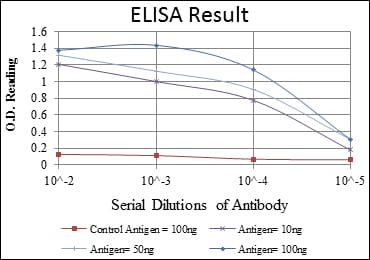
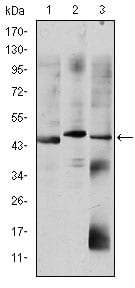
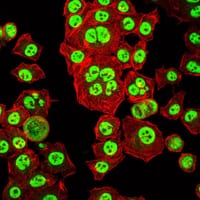
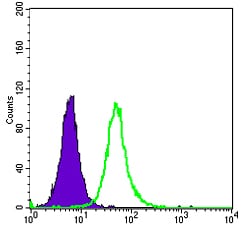
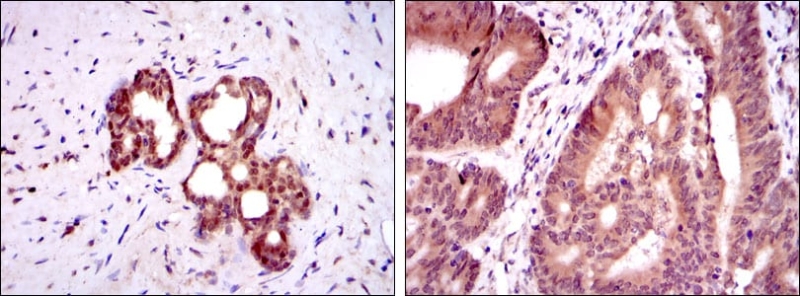
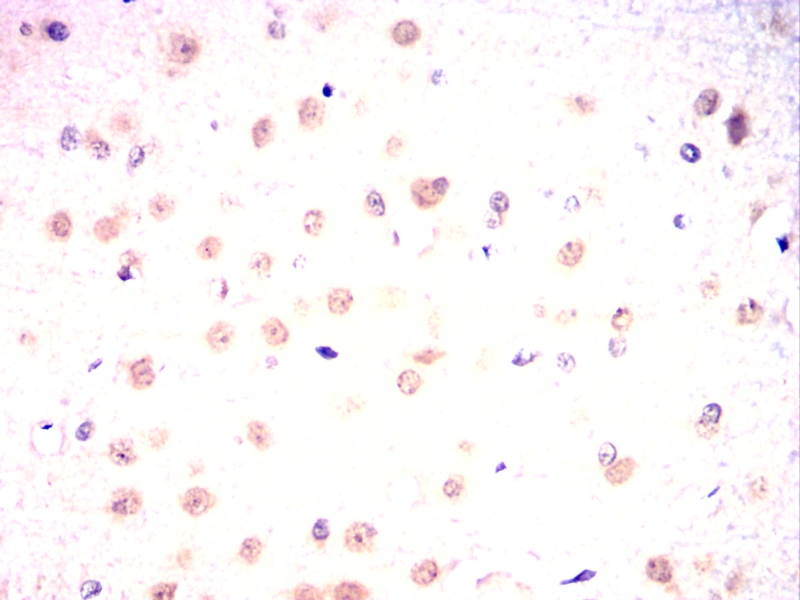
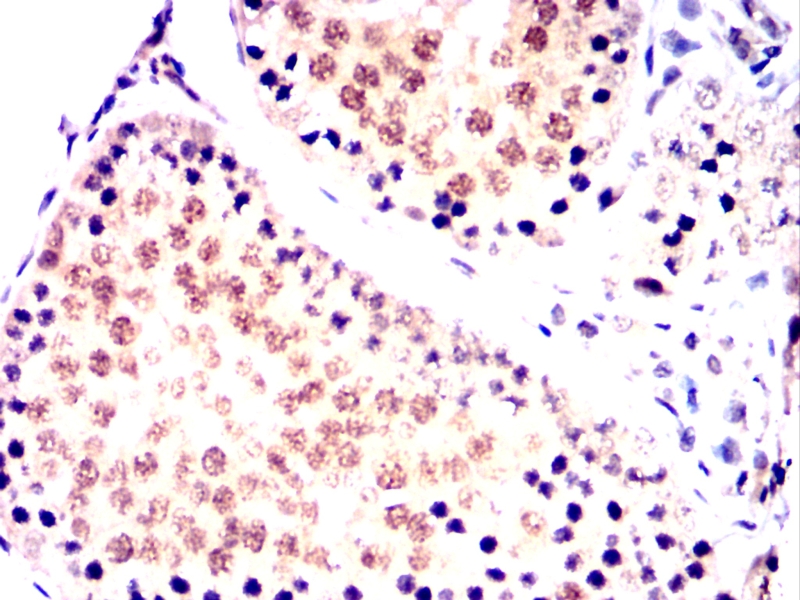
| WB | 1/500 - 1/2000 | Human,Mouse,Rat |
| IF | 咨询技术 | Human,Mouse,Rat |
| IHC | 1/200 - 1/1000 | Human,Mouse,Rat |
| ICC | 1/200 - 1/1000 | Human,Mouse,Rat |
| FCM | 1/200 - 1/400 | Human,Mouse,Rat |
| Elisa | 1/10000 | Human,Mouse,Rat |
| Aliases | MCOPS5; MGC45000 |
| Entrez GeneID | 5015 |
| clone | 1H12C4B5 |
| WB Predicted band size | 32kDa |
| Host/Isotype | Mouse IgG1 |
| Antibody Type | Primary antibody |
| Storage | Store at 4°C short term. Aliquot and store at -20°C long term. Avoid freeze/thaw cycles. |
| Species Reactivity | Human,Mouse,Rat,Rabbit,Monkey |
| Immunogen | Purified recombinant fragment of human OTX2 expressed in E. Coli. |
| Formulation | Purified antibody in PBS with 0.05% sodium azide. |
+ +
以下是3-4条关于OTX2抗体的参考文献(模拟示例,非真实文献):
1. **"OTX2 expression in human retinoblastoma and its diagnostic utility"**
*作者:Smith A, et al. (2018)*
*摘要*:研究通过免疫组化分析OTX2蛋白在视网膜母细胞瘤中的高表达,验证了特异性抗体的诊断价值。
2. **"OTX2 antibody validation for Western blot in neural development studies"**
*作者:Lee C, et al. (2015)*
*摘要*:验证了OTX2抗体在小鼠胚胎脑组织Western blot中的特异性,确认其在神经发育研究中的可靠性。
3. **"OTX2 as a biomarker in pituitary adenomas: immunohistochemical analysis"**
*作者:Garcia R, et al. (2020)*
*摘要*:利用OTX2抗体进行垂体腺瘤组织染色,发现其表达与肿瘤侵袭性相关。
4. **"OTX2 regulates dopaminergic neuron development in zebrafish"**
*作者:Chen H, et al. (2016)*
*摘要*:通过OTX2抗体阻断实验,揭示其在斑马鱼多巴胺能神经元分化中的关键作用。
(注:以上为模拟内容,实际文献需通过PubMed/Google Scholar等平台检索确认。)
The OTX2 antibody is a crucial tool in developmental biology and oncology research, targeting the Orthodenticle Homeobox 2 (OTX2) protein, a transcription factor encoded by the OTX2 gene. OTX2 plays a pivotal role in embryonic development, particularly in the formation of the forebrain, eyes, and pituitary gland. It regulates gene expression critical for neuroectoderm patterning, photoreceptor differentiation, and craniofacial development. Dysregulation of OTX2 has been implicated in various diseases, including medulloblastoma, retinoblastoma, and retinal degeneration, making it a biomarker of interest in cancer and ocular disorders.
Researchers use OTX2 antibodies to detect and localize the protein in tissues or cells via techniques like immunohistochemistry (IHC), Western blotting, and immunofluorescence. These applications help elucidate OTX2's expression patterns during development and disease progression. In cancer, OTX2 overexpression is linked to tumor aggressiveness and poor prognosis, driving studies on its role in oncogenesis and potential therapeutic targeting. Additionally, OTX2 antibodies aid in studying congenital disorders, such as microphthalmia and pituitary dysfunction, where OTX2 mutations disrupt normal development. Available as monoclonal or polyclonal variants, these antibodies are validated for specificity and sensitivity across species, including humans and mice, supporting diverse experimental models. Overall, OTX2 antibodies are indispensable for advancing understanding of developmental mechanisms and disease pathways.
×